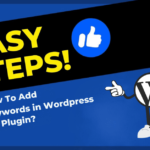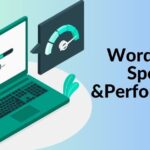The speed and performance of WordPress play 123an essential role in providing a good user experience. A website that takes a long time to load can lose visitors, decrease page views, and hurt SEO ranking.
This detailed tutorial will equip you with the best practices to speed up and improve your WordPress website so that it gives your visitors a pleasant experience and ranks well in search engines.
The Significance of Speed for Your WordPress Website
Before actually going into techniques to upgrade the speed of your website, let’s start with the basics: why is speed so important? Studies have shown that the time within which the average human can maintain concentration has decreased from 12 seconds in 2000 to about 8 seconds now.
As a website owner, you are given a short period to grab your visitors’ attention and convince them to stay on your site.
India’s particular case studies, such as the ones by Google and Amazon, demonstrate that an increase in page load time of even one second by 7% results in fewer conversions, 11% fewer page views, and 16% less customer satisfaction.
Consequently, speedy loading is an indisputable choice if you want to attract more and more visitors, improve your site’s rankings in the search results, and get higher sales.
How to Evaluate Your WordPress Website Speed
Even though you can assume that your website is good enough, if browsers load just fine on your computer, that will be a fatal mistake.
Modern browsers like Chrome store the webpages frequently visited in the cache so they can be loaded fast. In contrast, a fresh user may love fast page load times.
Utilize online tools such as Google PageSpeed Insights or GTmetrix to rate your website speed accurately.
Although these devices offer deep insights into your website’s load time, they will also suggest where the work should be directed. As a benchmark, look for a page loading time of more than 2 seconds.
Identifying Factors Slowing Down Your WordPress Site
Several potential issues could slow down your WordPress site. These include:
- Web Hosting: If the server serving your hosting is not configured well, it may negatively affect your website’s speed.
- WordPress Configuration: If your platform cannot serve cached pages, your server will be overwhelmed, causing your website to batter or crash.
- Page Size: Images optimized for the web can avoid long loading times for your site.
- Bad PluginsPlugins: A poorly made plugin plugin or any plugin plugin that is not useful at all can greatly slow down your website.
- External Scripts: External programs, such as ads, google fonts, or analytics, that run on your website affect your site’s performance.
Understanding these factors is the first step to defining and implementing the required optimization strategies.
WordPress Performance Optimization Essentials
Speeding up your website will require you to tweak different areas of your best WordPress environment.
Hosting
Your hosting services are a determining factor in the speed and performance of your site. The best hosts ensure your site is always up and consider site speed a significant factor.
The perfect hosting provider with a solid reputation among users for outstanding performance and support would be ideal.
Theme
One of the crucial things is creating an excellent theme to enhance your website’s speed. Creating themes with fancy themes on the front end may be difficult to code and raise the loading time of your site. Rather than this, use a simplistic, uncomplicated, lightweight design in which the sense of quickness comes ahead.
Plugins
PluginsPlugins are a double-edged sword for your website. They can provide extra functionality, but on the other hand, if not chosen carefully, they can slow down your website. Constantly select plugins that are well-coded, updated regularly, and highly appreciated by other users. Disclaimer: Our professional writers have prepared the essay samples presented on this page, which are examples only. Avoid plugins that make too many database calls or support too many scripts.
Boosting WordPress Speed and Performance: No Coding Required
Fortunately, you do not have to be a coding whiz to make your WordPress site load faster.
Make use of a WordPress Caching Plugin
Caching can increase the speed of your WordPress site by more than 100% because it stores a copy of your site’s pages and serves this version to the following visitors. This dramatically decreases the work your server will need to perform. Plugins: plugins such as W3 Total Cache or WP Super Cache might provide a solution to this.
Optimize Your Images
Images can make your content more captivating, leading to slow page load speeds if not optimized. It is advisable to compress and resize your photos before you upload them to your website using tools like TinyJPG or WP Smush.
Advanced WordPress Performance Optimization Techniques
For those who want to take their website speed to the next level, here are some advanced techniques: For those who want to take their website speed to the next level, here are some advanced techniques:
Cleavage Long Posts in Pages
The long and in-depth post is excellent for SEO and user engagement, but viewers only stick around if the page is fast to load fully. WordPress has a built-in solution for this: the Page-Break-block.
Incorporate this code in your blog writing tool to change long articles into multi-page posts.
Minimize External HTTP Requests
The speed of webpage loading may be reduced because of WordPress themes and plugins. Plugin files from other sites. Decrease this amount by offline of needless scripts and styles.
Remember to Keep Your WordPress Site Updated
Update your WordPress platform and plugins regularly, which may help your site’s speed. With upgrades, you get increased speed checks, check for inefficient code, and fix any errors your site may have.
Thus, speeding up your WordPress website management is recommended and vital in this digital world of instant gratification. Applying these tips and methods in a complete guide raises the performance and speed of a WordPress site; it provides a good user experience, great SEO ranking, and revenue growth.
Conclusion
Improving their WordPress website’s performance is necessary for the survival of the digital world. It can help address users’ concerns, enhance the visibility of their websites, and eventually result in higher revenue.
One can quickly evaluate the speed of his site, identify possible problems that may be slowing down the website, and use some optimization techniques from the list, such as choosing a good hosting provider, using a lightweight theme, and installing efficient plugins to increase the site’s performance without coding.
Using such nuance techniques as caching, image optimization, and a small number of external requests will undoubtedly transfer you and your website to higher levels. Lastly, as you optimize your WordPress website, you should regularly update the website, its plugins, plugins, and themes so that its speed and performance are not compromised.










